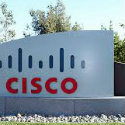It may seem like Cisco buys companies the way the rest of us buy smartphone apps – just for the heck of it, when they're bored. But there's actually a plan.

Cisco's impressive acquisitions spree is helping transform its business to recurring revenue, based on the cloud, security, software and services.
Historically, of course, Cisco Systems Inc. (Nasdaq: CSCO) has been in the business of selling equipment. That's still the cornerstone of Cisco's revenue, and it will remain important going forward. But it'll be only part of that broader business.
In Cisco's most recent quarter, ending in April, recurring revenue was 32% of its business, up two points year-over-year. (See Cisco: Revenue Slump? What Revenue Slump?)
It's been a tough transition for Cisco, which saw two years of declining revenues in consecutive quarters. However, more recently, Cisco has had two straight quarters of improving revenues. Cisco's next earnings report is next week -- August 15.
Acquisitions have been important drivers to Cisco's business transition. Several CEOs of companies Cisco has acquired recently have been installed in the top ranks of Cisco -- although in at least one case the founding team skedaddled after the acquisition.
Figure 1: 
Now entering its fifth year, the 2020 Vision Executive Summit is an exclusive meeting of global CSP executives focused on navigating the disruptive forces at work in telecom today. Join us in Lisbon on December 4-6 to meet with fellow experts as we define the future of next-gen communications and how to make it profitable.
The latest acquisition in Cisco's 25-year-shopping spree was its 206th: Duo Security, which provides endpoint security and user authentication delivered over the cloud. Cisco reached an agreement to buy that company last week. (See Cisco Takes Security Beyond the Enterprise Network With $2.35B Duo Buy .)
"This is an accelerator of our current strategy, which is to go into SaaS offerings and go into cloud-based security offerings in a way that both creates new markets for Cisco and complements the existing ones," Gee Rittenhouse, Cisco senior vice president of engineering for the Security Business Group, tells Light Reading.
Security is a key component of Cisco's transition. Cisco's security business grew 11% in its most recent quarter, almost triple the company's overall growth. But security comprised only 4.7% of total sales.
In addition to Duo, highlights of Cisco's other acquisitions include:
Viptela: Cisco bought the SD-WAN vendor for $610 million in May 2017. The company delivers its service through licensed software and over the cloud. SD-WAN is inherently a security play -- the traffic moves over the insecure public Internet, and network operators look to SD-WAN providers to secure that traffic. (See Cisco Looks to $610M Viptela Acquisition to Simplify SD-WAN and Cisco Snaps Up Viptela.)
Key Viptela founders have since jumped ship to form a new stealth startup, which my colleague Ray Le Maistre scooped last month. (See Viptela's Kingpins Have a New Stealth Startup.)
AppDynamics: Cisco acquired that company for $3.7 billion in January 2017, and those assets have since become the foundation for Cisco's cloud monitoring service, providing end-to-end visibility for both networks and applications. Under Cisco, AppDynamics goes beyond simple network performance monitoring to monitor customer experience and other elements of business performance. (See Cisco's AppDynamics Looks to Drive Business Value and Cisco Buying AppDynamics for $3.7B.)
Jasper Technologies: The company provides a cloud-based platform for monitoring Internet of Things devices. Cisco saw the $1.4 billion January, 2016 acquisition as more than just a technology play -- Cisco saw it as pivotal to to its transition to recurring service contracts. (See Cisco Looks to Jasper Acquisition to Transform Enterprises – & Itself and Cisco Buys IoT Cloud Provider Jasper for $1.4B.)
Meraki Networks: Cisco shelled out $1.2 billion in 2012 for the company specializing in cloud-based WiFi management. Since then, Cisco has broadened the platform to a broad range of network management services delivered over the cloud. (See Cisco Shells Out $1.2B for Meraki and Why Cisco Wants Meraki's Wi-Fi Smarts.)
Sourcefire: That company's $2.7 billion 2013 acquisition was a big security step for Cisco. Sourcefire provides intrusion and malware prevention. Founder Martin Roesch now serves as vice president and chief architect of Cisco's Security Business Group. (See Cisco Banks On Sourcefire And Snort For Its Security Future.)
OpenDNS: Cisco scooped up that company, which provides DNS protection, in 2015 for $635 million. OpenDNS CEO David Ulevitch is now vice president of Cisco's security business group. (See Cisco to Buy Security Expert for $635M and Ulevitch to Head Cisco's Security Operations.)
Accompany: Cisco bought the vendor of sales AI tools in May for $270 million, and installed CEO-founder Amy Chang as senior vice president in charge of Cisco's collaboration group. Accompany provides a platform for finding new prospects, navigating sales and strengthening relationships, and Cisco plans to embed Accompany across its collaboration portfolio. (See Cisco Acquires AI Firm for $270M – CEO to Head Collaboration.)
Broadsoft: Cisco acquired the cloud-based unified communications specialist for $1.9 billion in 2017.
July Systems: Cisco bought that company in June for its technology that uses WiFi to locate customers, employees and visitors inside facilities. Cisco is seeking to enable enterprises to provide better WiFi connectivity, as well as improving services by learning more about how people are using facilities. Terms of the deal were not disclosed. (See Cisco Buys July Systems to Help Track People Indoors.)
Skyport Systems: Acquired in January, the company provides secure infrastructure using hyperconverged systems managed over the cloud, with security built into the hardware. Terms of the acquisition were not disclosed. (See Cisco to Buy Skyport Systems for Cloud Security.)
— Mitch Wagner ![]()
![]()
![]()
![]() Executive Editor, Light Reading
Executive Editor, Light Reading
About the Author(s)
You May Also Like











